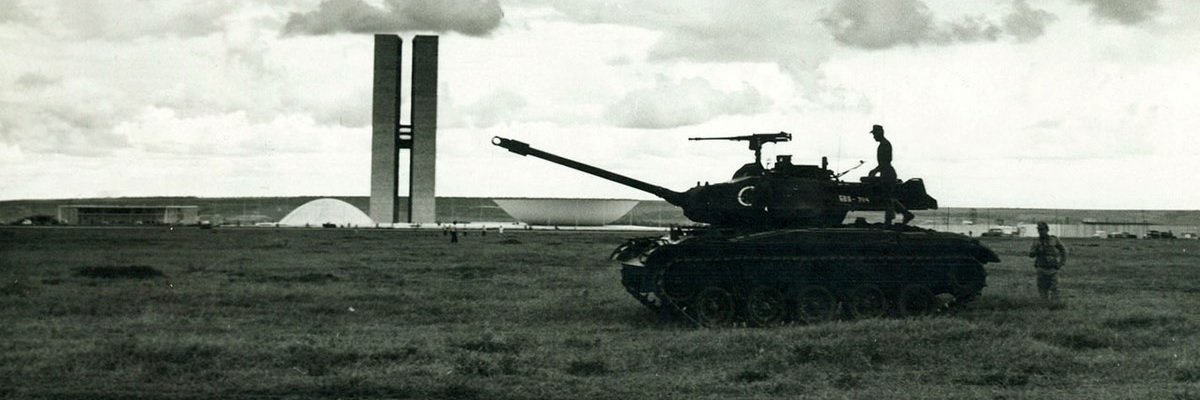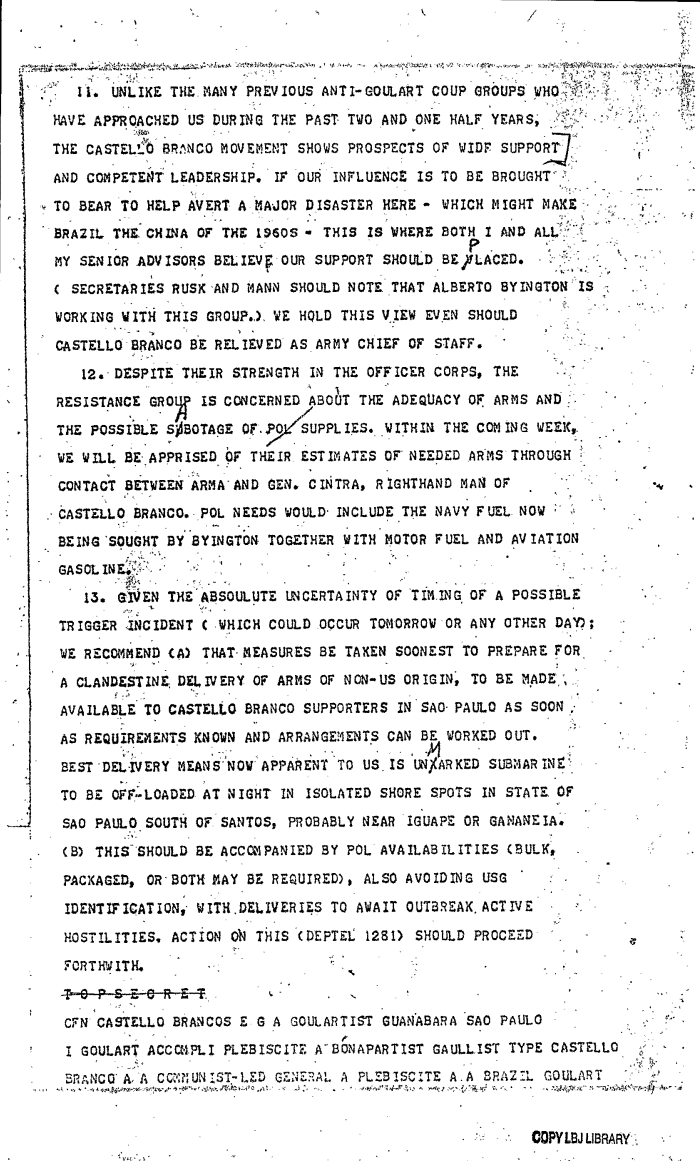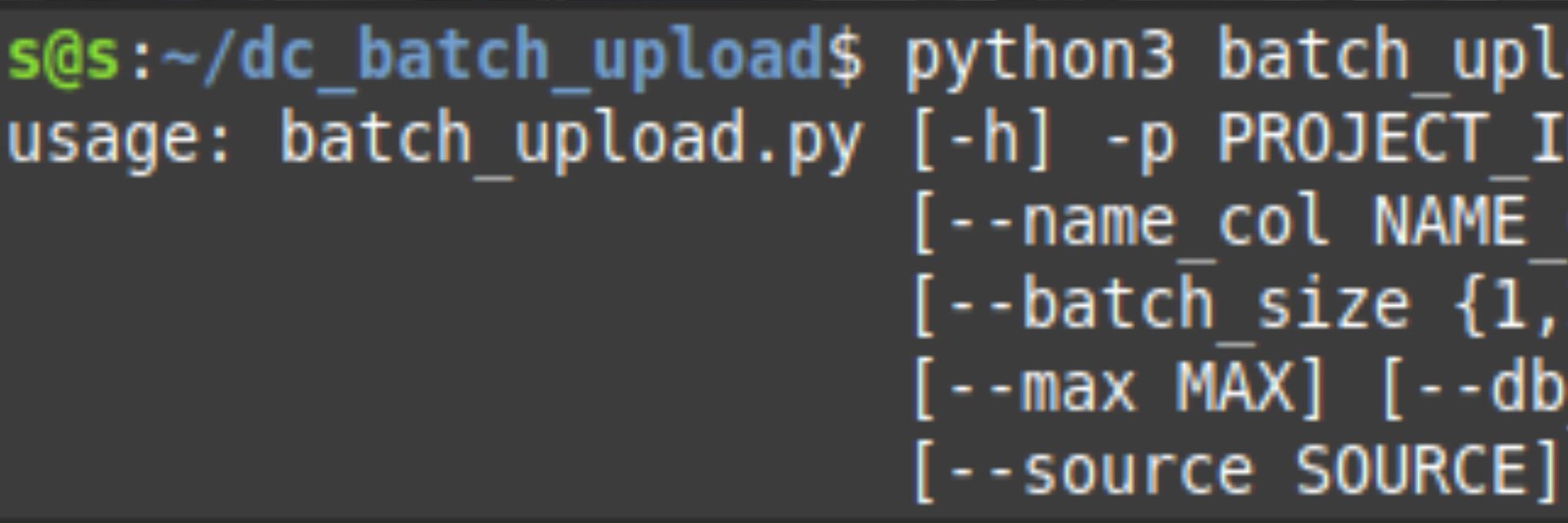On October 28th, polls show Brazil will likely elect a candidate who openly praises the country’s military dictatorship - the period from 1964 to 1985 marked by censorship, extrajudicial killings, and torture of political opponents. Former army captain Jair Bolsonaro is not subtle in his pining for a time when Brazil was governed by force and ruled by fear, especially for leftists, Afro-Brazilians, and the poor.
In 2016 while a representative in the Brazilian Congress, Bolsonaro dedicated his vote to open impeachment proceedings against then-president Dilma Rousseff to Alberto Brilhante Ustra, the Brazilian intelligence officer responsible for the torture of hundreds of leftists, including Rousseff herself. Bolsonaro’s statements leave little doubt as to his stance on the subject:
“I’m pro-torture, and the people are too.”
“You won’t change anything thing in this country through voting - nothing, absolutely nothing. Unfortunately, you’ll only change things by having a civil war and doing the work the military regime didn’t do. Killing 30,000 starting with FHC [former president Fernando Henrique Cardoso]. Killing. If a few innocent people die, that’s alright.”
“The dictatorship’s mistake was just torturing and not killing.”
Bolsonaro’s promises to purge leftists and instruct the police to kill indiscriminately have gained him massive traction in a Brazil that saw 63,000 violent deaths last year and that is mired in economic crisis that many attribute to years of corruption in the center-left Worker’s Party. (The reality, as always, isn’t so simple). Bolsonaro has garnered endorsements from the Klu Klux Klan, international condemnation, and scores of ‘meet the Brazilian Trump’ reports in American media.
But while Bolsonaro’s overt embrace of authoritarianism and violence may seem aberrant to many foreign observers, it differs only in degree from decades of US foreign policy in Latin America. Declassified Central Intelligence Agency and State Department records from the midst of the Brazilian military dictatorship reveal an official US policy of support for the very brutality Bolsonaro intends to revive.
The public record of the CIA’s actions in Brazil is incomplete. Many of the Agency’s files on the 1964 military coup against democratically-elected left-wing president João Goulart remain classified, painting an incomplete picture of US involvement. But formerly SECRET telegrams show US Ambassador to Brazil Lincoln Gordon pushing for direct involvement in the overthrow of Brazilian democracy, discussing CIA support of Humberto de Alencar Castelo Branco, the leader of the military, and other groups working to undermine the Goulart government.
A memo detailing a White House meeting on April 1st, 1964 (as the coup happened) also show US naval and military forces in position and poised to act in support of the Brazilian military, with the blessing of President Lyndon Johnson and top defense and intelligence officials - although the coup’s success meant they were never called upon.
Brazilian military officers assuming power in 1964 would go on to direct censorship programs, as well as the torture and execution of dissidents. Many of these same officers also received extensive training from the US at the School of the Americas (which continues to operate as the Western Hemisphere Institute for Security Cooperation).
Details about the activities of the DOPS (Department of Political and Social Order) and DOI-CODI (Department of Information Operations - Center for Internal Defense Operations), the Brazilian intelligence agencies that arrested, held, and tortured opposition groups, surface in CIA documents from the early ’70s, as President Richard Nixon’s administration held fast to the US’ public support of the regime.
One confidential memo published in October of 1970 reveals the experiences of an American businessman, Robert Horth, who was mistakenly imprisoned by DOPS in São Paulo. One of the memo’s subheadings reading “CELLMATES TORTURED” details the horrific torture practices the Brazilian “suspected political subversives” shared with Horth while they shared a cell.
In 1971, when a scheduled visit to the US by then-Brazilian president Emílio Garrastazu Médici coincided with members of the Brazilian clergy denouncing the torture of priests and nuns critical of the dictatorship, US officials treated the situation as nothing more than a PR crisis. One memo to National Security Advisor Henry Kissinger reveals the State Department’s stance.
The memo argues “the hard-line approach” - the brutal suppression of dissent through torture and extrajudicial killings - would prove a “potential embarrassment” to Medici and Nixon. The memo advises a direct message from Medici to Nixon, advising the Brazilian president to distance himself from the torture. “The message would not moralize, but would emphasize our mutual interest in protecting Medici’s and the GOB’s [Government of Brazil] image,” it reads.
In 1972, as reports of torture in Brazil spread internationally, a secret cable from Kissinger’s office to the U.S. embassies in Brazil detailed the US government’s public line on an amendment to the Foreign Assistance Authorization Act put forward in Congress by Senator John Tunney of California that would put an end to US military assistance to Brazil until reports of torture were investigated.
Other CIA documents, many of which proved instrumental for the Brazilian Truth Commission’s 2014 report on the victims of the military dictatorship, prove State Department officials had full knowledge of the regime’s abuses. The following memo, declassified and delivered to President Rousseff by US Vice President Joe Biden in 2014, includes a six point torture protocol carried out by military officials.
US officials kept the names of Brazilian officials involved redacted, and an amnesty law passed during the dictatorship means that none of the officers involved have faced consequences for their actions.
Even so, other documents link hundreds of deaths to top Brazilian officials. Just this year a São Paulo-based academic found a US State Department memo declassified in 2015 detailing a meeting in which Brazilian President Ernesto Geisel (1974-1979) gave explicit permission for Brazil’s intelligence service to continue its policy of executing dissidents.
Este é o documento mais perturbador que já li em 20 anos de pesquisa: Recém-empossado, Geisel autoriza a continuação da política de assassinatos do regime, mas exige ao Centro de Informações do Exército a autorização prévia do próprio Palácio do Planalto. https://t.co/BoVbqPQ0ze pic.twitter.com/C4JiN454ps
— Matias Spektor (@MatiasSpektor) May 10, 2018
The memo provoked the ire of Bolsonaro, who suggested its release was part of a coordinated campaign against his candidacy. The document, and others publicly available in the CIA’s CREST database, are just the beginnings of a full picture of US support of mass violence in Brazil. Explore those records, as well as others regarding the Agency’s activities in Central and South America, via the link below.
Image via Wikimedia Commons





